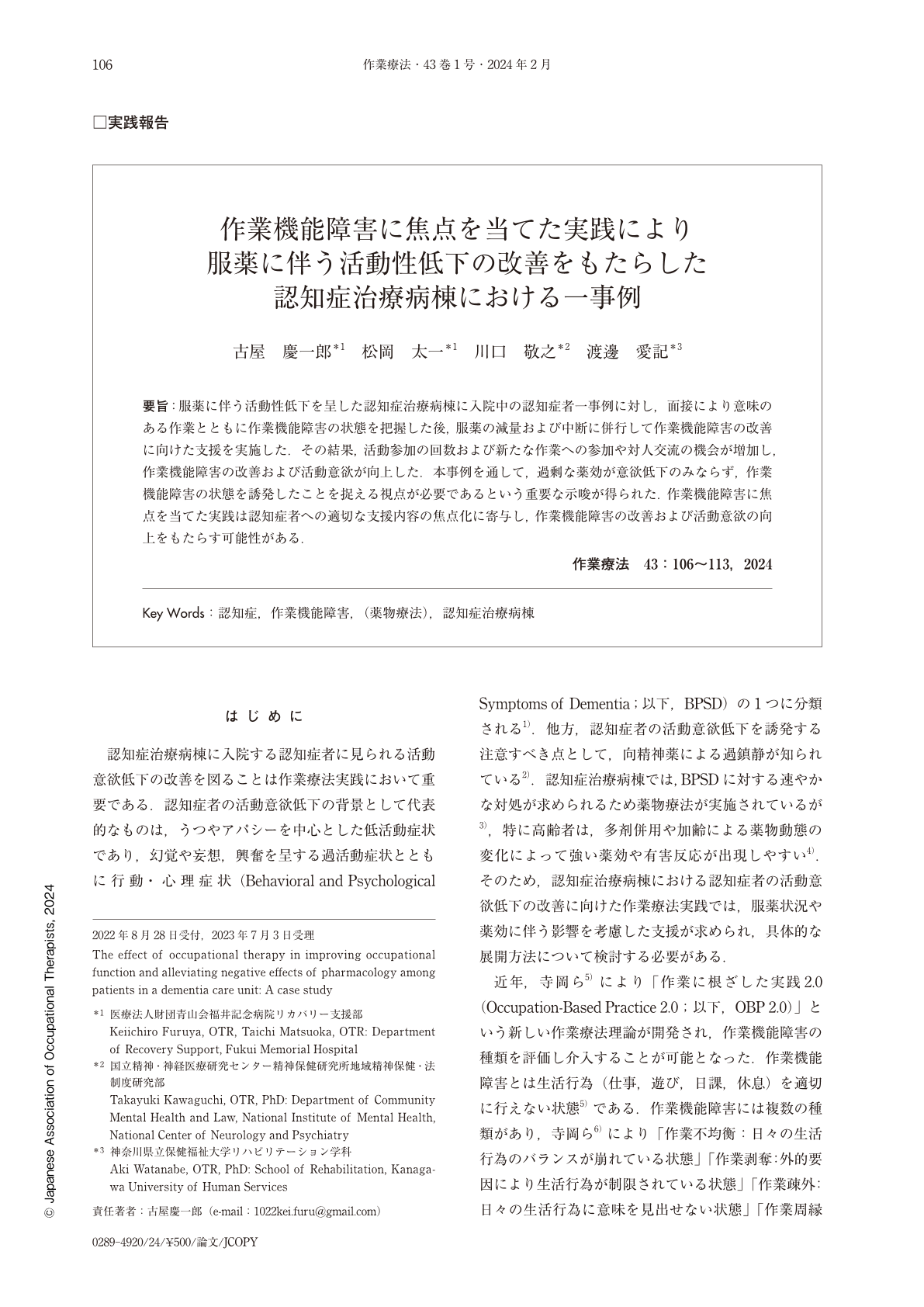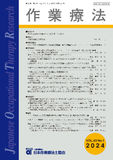Japanese
English
- 販売していません
- Abstract 文献概要
- 1ページ目 Look Inside
- 参考文献 Reference
要旨:服薬に伴う活動性低下を呈した認知症治療病棟に入院中の認知症者一事例に対し,面接により意味のある作業とともに作業機能障害の状態を把握した後,服薬の減量および中断に併行して作業機能障害の改善に向けた支援を実施した.その結果,活動参加の回数および新たな作業への参加や対人交流の機会が増加し,作業機能障害の改善および活動意欲が向上した.本事例を通して,過剰な薬効が意欲低下のみならず,作業機能障害の状態を誘発したことを捉える視点が必要であるという重要な示唆が得られた.作業機能障害に焦点を当てた実践は認知症者への適切な支援内容の焦点化に寄与し,作業機能障害の改善および活動意欲の向上をもたらす可能性がある.
In this case study, support for improving occupational function following the reduction and discontinuation of medication was provided for a patient with dementia upon diagnosis of occupational dysfunction. The patient had been admitted to a dementia care unit and showed a decrease in activity associated with medication. As a result, participation in new occupational activities and opportunities for interpersonal interaction increased along with increased participation in the number of occupational therapy programs. Furthermore, the patient's occupational function and motivation for activity improved. This case study suggests the importance of an assessment to understand the effect of overmedication on occupational dysfunction and decrease in motivation for activity. Practice which targets occupational dysfunction might contribute to focusing on the appropriate content to support patients with dementia, thus alleviating their occupational dysfunction and increasing their motivation for activity.

Copyright © 2024, Japanese Association of Occupational Therapists. All rights reserved.


